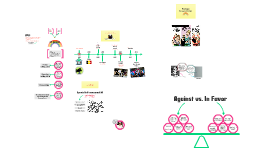LISTENING AND SPEAKING PRESENTATION
Transcript: Consequences Main factors led WorldCom to the accounting fraud: Prior to the June 25th announcement about accounting problems, WorldCom stock had fallen from a high of $64.50 a share in mid-1999 to less than $2 a share. And the price fell below $1 a share immediately after the announcement and then to pennies a share upon news that there might be further accounting irregularities. Consequences WorldCom Employees People who involved The investors who had intended to continue to hold the shares or even bought more in anticipation of a rebound were hurt in the accounting maneuver and lost their money. David Myers How the accounting scandal was discovered The accounting scandal of WorldCom Corporation caused $180 billion of stakeholder’s value lost. WorldCom Corporation Scott Sullivan who served as CFO, treasurer and secretary was the directed staff to make false accounting entries. He personally made false and misleading public statements regarding finances. Like Bernie Ebbers, Scott Sullivan also gained a huge amount of money from stock sales which was $45 million. In addition to a substantial salary and annual bonuses, David Myers who was the Senior Vice President and Controller received a retention bonus of $765,000 in May 2000 as an incentive for him to stay at WorldCom through May 2002. Like Verizon Communication or an equipment producer like Lucent Technologies owed money by WorldCom, they will have difficulty collecting these debts as WorldCom shields itself from creditors under bankruptcy Bernard Ebbers who is the former CEO, borrowed $366 million to cover losses on stock which was not repaid and netted $140 million from stock sales. He also secured loans from WorldCom to fund personal investments including a $100 million Canada ranch, $658 million in Mississippi timberlands and a $14 million Georgia shipyard. Bernard Ebbers was sentenced in prison for 25 years. Sullivan entered a guilty plea and was sentenced to five years in prison as part of a plea agreement David Myers,was sentenced to one year and one day in prison. David Myers, the former controller Creditors Growing Competition Fewer Merge Increasing Expenses of line costs Sprint Demerger Pressure to Meet the Expectation of Wall Street Dot-com boom ended The 3 involved people $2 billion announced for capital expenditures, which was never authorized and there was $500 undocumented million in computer expenses that were recorded as assets. June 14, 2002, the audit team contacted WorldCom’s audit committee and asked for supporting documents, but nothing to find. June 25, 2002, WorldCom admitted to inflate its profits by $3.8 billion over the previous five quarters. July 21, 2002, Worldcom filed for the bankruptcy. Scott Sullivan Executive Branch Bernard Ebbers WorldCom employees who held the company’s stock in their retirement plans had also suffered losses. One the other hand, after the June 25th announcement, 17,000 employees were cut. First spotted by the internal auditor, Cynthia, in May, 2002. The line costs were mistreated as capital expenditures to boost net income according to initial accounts. The Security and Exchange Commission was also suspicious and requested WorldCom to provide more information. Bernie Ebbers, the former CEO WorldCom was the U.S.’s second largest long-distance operator from 1998 to 2002. Its headquarter was located in Clinton, Mississippi. WorldCom grew largely by acquiring other telecommunications companies; it acquired more than half-dozen communication companies between 1988 and 1994. Jack, Marguerite and Scarlett How the accounting scandal was discovered Scott Sullivan, the former CFO WorldCom Solution: Stakeholders Investors The company should employ independent accounting counselors to check accounting regularities. Employees can have right to scepticize administrative department of company. Investors could sell stocks by decreasing prices and increasing amount in order to exchange cashed which are able to decline risks of investments Judicial office may examine financial system of company every year without specific timetables.

















